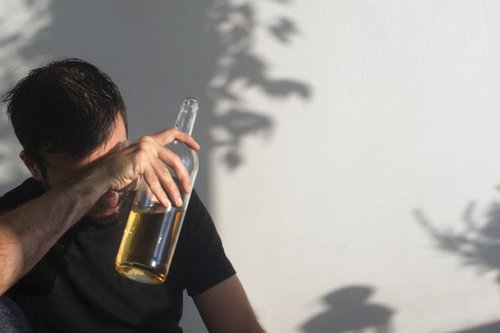What Laws Regulate Public Intoxication in Ontario?

You drink responsibly, right? Not only do you intuitively know that you should drink responsibly, but public service announcements by non-profit organizations like Mothers Against Drunk Driving and governmental bodies like the Liquor Control Board of Ontario frequently remind us to “drink responsibly."
While “drink responsibly" is primarily associated with being responsible by not getting behind the wheel after drinking, being a responsible drinker can also mean limiting your alcohol consumption in the interest of your personal health and for the preservation of public order. Heavy alcohol use can affect one's health, while anyone with too much to drink is more likely to disrupt public order, whether inadvertently or on purpose.
Little doubt that you've witnessed someone who's had a few too many drinks disrupt public order, whether by staggering down the sidewalk to the peril of themselves and other pedestrians or by just being loud and obnoxious. Or perhaps, you've seen someone who couldn't find a porcelain god to pray to, so they've resorted to expelling their stomach contents in public. Maybe you've witnessed a bar brawl, street fight or other public scuffles that were obviously instigated in part due to drunkenness. And some people drink so much that they end up passed out in public, which is also disturbing.
Of course, you've never drunk so much that you've caused a public ruckus, right?
Anyhow, for this month's blog post, we thought we'd dive into the issue of public intoxication and inform our readers about how the law addresses it. While it's a slight deviation from our usual legal fare of drunk driving-related information and what happens when someone is arrested for DUI , the topic has relevance. If the post can help encourage you to drink responsibly so as not to cause public disorder, perhaps that drinking responsibly concept will extend into not getting behind the wheel.
Public Drunkenness is a Federal Offence
You might be surprised to learn that public drunkenness is regulated under Canada's Criminal Code. Under Section 175 (1)(a)(ii) of the Code, causing “a disturbance in or near a public place by being drunk" is a summary conviction offence. While what might constitute a drunk-induced disturbance is subjective, other language in the regulation tries to narrow it down. Some specific examples of public disorder (drunken or otherwise) include:
- Fighting
- Screaming
- Shouting
- Swearing
- Singing
- Exhibiting an indecent exhibition
- Impeding or molesting other people
- Obstructing other people
- Disturbing the peace and quiet
- Disorderly conduct
The regulation specifically allows the courts to rely solely on evidence from police to determine whether the alleged conduct amounts to an illegal public disturbance. And if police provide a detailed description of your intoxication and related disturbing behaviour, there's a good chance you'll end up convicted. This comes with a maximum penalty of six months in jail, a $5,000 fine, or both.
Ontario Public Intoxication Law Doesn't Require a “Disturbance"
If you're drunk in public, Ontario police do not have to wait for you to cause a disturbance to make an arrest. That's because Section 31 (1) of the Liquor License and Control Act of 2019 makes it illegal to “be in an intoxicated condition in a place to which the general public is invited or permitted access.; or any part of a residence that is used in common by persons occupying more than one dwelling in the residence" (i.e., common areas in apartment and condo buildings).
The Ontario public drunkenness law provides police with leeway in dealing with intoxicated persons in public—something they frequently must do. The Ontario regulation allows police to go easy on spirited people when their disturbance might be considered mild and provides a means of giving intoxicated people a stern warning before they create a public nuisance.
Police usually issue a $50 citation for the offence. However, Section 31 (2) of the act allows them to make a physical arrest if they believe that the subject represents a potential threat to themselves or others. Section 48 (1) of the act further gives police the authority to take an intoxicated person into custody and, instead of charging them with public intoxication, escort them to a hospital. This section of the act is designed to provide health care to those whose intoxication poses a distinct risk to their immediate health.
Ontario Public Intoxication Law Also Addresses Mass Disturbances
Sometimes parties and bars get out of hand due to the mass inebriation of the guests. As such, Section 46 of the liquor act allows police to order all people to vacate the premises of any place that has a license or permit to serve alcohol. Police can only issue this order if they “reasonably believe that a disturbance or breach of the peace is sufficient to constitute a threat to public safety is being caused on the premises." Naturally, anyone subsequently causing a disturbance out on the street after vacating the premises is subject to further police attention and potential arrest under either federal or provincial law.
Drink Responsibly and Trust TorontoDUI for Your DUI Defence
We trust that our blog post will help you drink responsibly so that you do not run afoul of public intoxication laws. Needless to say, responsible drinking should extend to your driving habits. Getting arrested for public drunkenness, especially under provincial law, will probably not ruin your life. However, getting convicted of a DUI most certainly will.
If you're facing impaired driving charges, the criminal defence lawyers of TorontoDUI may be able to help. With a stellar reputation in the Greater Toronto for helping clients favourably resolve their DUI cases, contact TorontoDUI for your free initial consultation.
